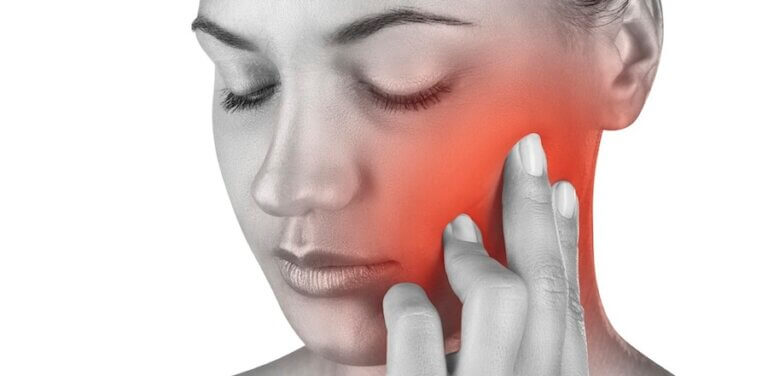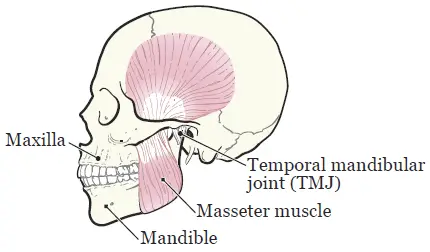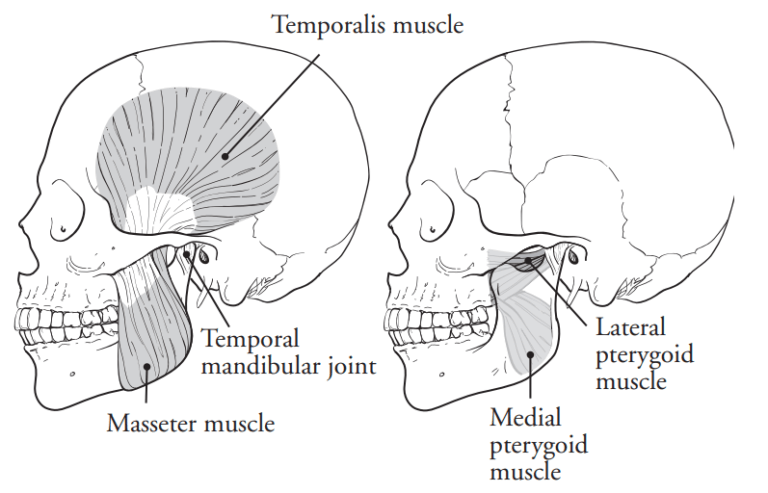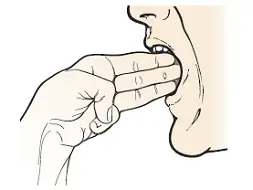Lockjaw

What Is Lockjaw?
Lockjaw, medically known as trismus, is a condition that restricts jaw movement, making it painful or challenging to open the mouth fully. It affects the muscles responsible for opening and closing the jaw, potentially interfering with essential daily activities like eating, speaking, and oral hygiene.
This condition may arise due to various factors, including dental procedures, head or neck trauma, infections like tetanus, and cancer treatments affecting the jaw. Left untreated, lockjaw can lead to further complications, such as malnutrition, dental issues, and speech problems. However, with timely diagnosis and appropriate treatment, it is possible to alleviate symptoms and regain jaw function.
Before you contact a Toronto dentist to examine Lockjaw, there are some things you should know as a patient:
- Normal Jaw Function
- Causes of Lockjaw
- Signs And Symptoms Of Lockjaw
- Treatment Options For Lockjaw
- Managing Lockjaw Until You Can See The Dentist
- Frequently Asked Questions About Lockjaw
If you have questions about Lockjaw or other dental problems, please contact us for more information.
Normal Jaw Function
To understand lockjaw, it’s helpful to know how normal jaw function works. Your jaw is primarily formed by two bones:
- Maxilla – the upper jawbone.
- Mandible – the lower jawbone, which is connected to the skull via the temporomandibular joint (TMJ).

The TMJ acts as a hinge, enabling jaw movement. Several muscles, including the masseter, temporalis, lateral pterygoid, and medial pterygoid muscles, work in unison to open and close the jaw for actions such as chewing and speaking. Any disturbance to these bones, joints, or muscles can potentially result in lockjaw.

Causes of Lockjaw
Lockjaw can occur due to various underlying causes. Common factors include:
- Dental Procedures: Extensive dental procedures, like wisdom teeth extraction or root canals, can sometimes lead to lockjaw. Swelling or inflammation in the jaw muscles may restrict movement.
- Head and Neck Cancer: Cancer treatments, especially radiation therapy, can lead to scarring or tissue damage in the jaw area, causing muscle stiffness and limited movement.
- Trauma to the Jaw or TMJ: Injuries from accidents or sports can damage the muscles, ligaments, or bones in the jaw, potentially leading to lockjaw.
- Infections: Certain infections, including tetanus (a bacterial infection) and mumps, can affect the jaw muscles and nerves, limiting jaw movement.
- Radiation Therapy: Radiation for head and neck cancers can cause scar tissue in the jaw area, making it difficult to open the mouth fully.
If you’re experiencing lockjaw symptoms, consult a dental or medical professional to determine the underlying cause and appropriate treatment. For more information about Lockjaw, please contact us.
Signs and Symptoms of Lockjaw
Lockjaw symptoms can vary in severity. Here are common signs that may indicate trismus:
Physical Signs:
- Limited Mouth Opening: Normally, the mouth opens about 40-60 mm (roughly three finger-widths). In cases of trismus, this range may be restricted to 20-35 mm.
- Jaw Deviation: The jaw may move or deviate to one side due to muscle spasms.
- Swelling and Fever: Facial swelling and fever may accompany lockjaw if an infection is present.
Symptoms:
- Persistent Tooth Pain: Pain or discomfort even when the jaw is at rest.
- Difficulty Opening the Mouth Fully: Struggles with wide jaw opening or full-range motion.
- Challenges Chewing or Biting: Difficulty eating solid foods due to restricted jaw movement.
- Discomfort While Yawning: Yawning may become painful or limited.
- Oral Hygiene Difficulties: Reduced jaw mobility can make it hard to brush teeth or perform oral hygiene, increasing the risk of cavities and bad breath.
- Jaw Muscle Pain: Pain in the muscles used for chewing, such as the masseter and temporalis.
- Muscle Tightness: Tightness, stiffness, or cramping in the jaw area.
If you recognize these symptoms, it’s essential to consult with a dentist or doctor promptly for evaluation and treatment. If you experience any of these symptoms of Lockjaw, please contact us.

Treatment Options for Lockjaw
The right treatment for lockjaw depends on the cause and severity of the condition. Common treatment approaches include:
- Physical Therapy: Targeted exercises to stretch and strengthen jaw muscles can significantly improve mobility. A therapist may also use techniques like myofascial release to relieve tightness.
- Medications: Muscle relaxants, anti-inflammatories, and pain relievers are often recommended. Some options include:
- Robax Platinum (500 mg methocarbamol and 200 mg ibuprofen) for muscle spasm relief.
- Over-the-counter pain relievers like ibuprofen (Advil) or acetaminophen (Tylenol). Combining 1000 mg of acetaminophen with 600 mg of ibuprofen every 4-6 hours can provide strong pain relief.
- Surgical Intervention: In severe cases, surgery may be necessary to address structural issues in the jaw or TMJ.
- Dental Treatments: If a dental problem causes lockjaw, such as inflammation after a procedure, your dentist may prescribe antibiotics, medicated mouth rinses, or dental appliances.
- Self-Care at Home: Simple measures, like applying a warm compress, massaging the jaw, or performing gentle jaw exercises, may relieve discomfort. See our guide on Myogenic Trismus Home Care Instructions for self-care tips.
Discuss with a healthcare provider to determine the best treatment plan for your unique needs. For more information about Lockjaw treatment options, please contact us.
Managing Lockjaw Until You Can See the Dentist
If you’re experiencing lockjaw symptoms and can’t see a dentist right away, here are some interim steps:
- Apply Warm Compresses: A warm compress on the jaw may help relax muscles and reduce pain.
- Perform Gentle Jaw Exercises: Slowly open and close your mouth, or move your jaw side-to-side to improve flexibility.
- Avoid Hard Foods: Opt for softer foods that require minimal chewing.
- Take Over-the-Counter Pain Relievers: If needed, follow instructions for medications like Advil or Tylenol until you can see a dentist.
- See our guide on Myogenic Trismus Home Care Instructions for self-care tips.
These measures are only temporary solutions, and a professional evaluation is essential for effective long-term care. For more information on lockjaw and personalized care options, don’t hesitate to contact us at Atlas Dental. Our experienced team is here to help diagnose and treat jaw pain to improve your quality of life.
Frequently Asked Questions About Lockjaw
- Can stress contribute to lockjaw?
Yes, stress can lead to habits like teeth grinding or clenching, which may strain jaw muscles and contribute to the development of lockjaw.
- What are the long-term complications of untreated lockjaw?
Untreated lockjaw can lead to chronic pain, permanent jaw stiffness, difficulty with oral hygiene, and potential joint damage.
- Is physical therapy effective for lockjaw?
Yes, physical therapy can help improve jaw mobility, strengthen muscles, and reduce stiffness in many cases.
- Does lockjaw require surgery?
Surgery is typically a last resort and is considered only if non-invasive treatments fail or if there is a structural issue, such as a joint disorder or severe trauma.
Lockjaw, while often manageable, can significantly impact daily activities if left untreated. For more information about how to prevent Lockjaw, please contact us.

